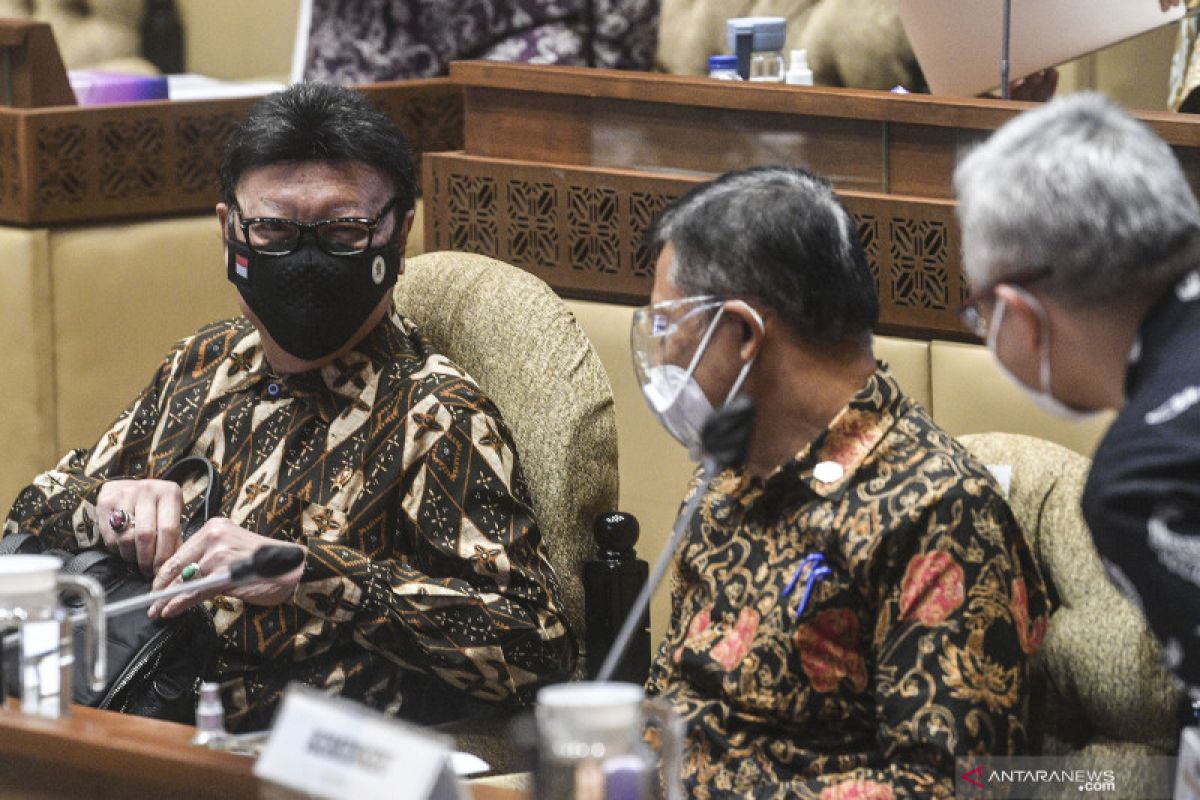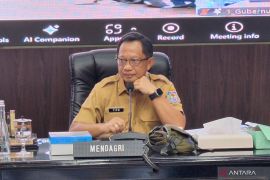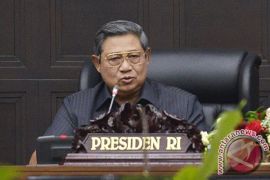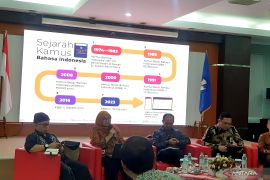However, simplifying the government's bureaucracy structure requires an impactful and unpopular policy, especially for the state apparatus (ASN), since it will require them to be out of their comfort zone, he noted.
However, the policy is important to fulfill President Joko Widodo and Vice President Ma'ruf Amin's directive, which is to simplify the bureaucracy and strengthen functional roles.
Kumolo has acted quickly: he issued the State Apparatus and Bureaucratic Reform Minister Regulation No. 28 of 2019 regarding Equalizing Administrative Role into Functional Role the same year he was inaugurated as minister.
The regulation was published less than two months after Kumolo's inauguration, and supported the minister's policy of cutting down 39 thousand state apparatus positions in the III echelon and IV echelon by February 2021.
In his report to Vice President Ma'ruf Amin on March 4, 2021, Kumolo explained that these administrative roles have been converted into functional roles.
He deemed that a plethora of public services took too long due to the lengthy bureaucratic stages that had to be followed.
To this end, it is expected that the pruning would simplify the bureaucracy, which can lead to faster decision-making by the authority, he said.
The step would disincentivize the state apparatus from targeting structural positions, he said.
Kumolo said he wants the state apparatus to focus on their professional performance to provide the best service to the public.
In general, bureaucrats tend to favor structural positions, since these roles are deemed to provide strong power and authority, he noted.
As a result of this mindset, they end up straying from their duty as public servants, he added.
To this end, the minister expressed the hope that the policy would shift state apparatus' mindsets of targeting structural positions since their career would now depend on their performance as public servants.
The old mindset will be transformed into a perspective that prioritizes optimizing the government's function as a servant to the people, he said.
Reforming the roots
Several changes in bureaucratic structure have been introduced by the Ministry of State Apparatus and Bureaucratic Reform.
However, the question it is facing is: how to deal with the non-physical aspect that determines the quality of bureaucrats' performance in providing public services, such as integrity, compliance with the code of conduct, honesty, transparency, and accountability?
These non-physical conditions, to borrow a structuralist perspective, are a part of the structure itself, observers said.
To this end, these aspects should be inseparable from the bureaucratic reformation that the ministry has undertaken in order to create an effective government and a professional public service, they added.
The Ministry of State Apparatus and Bureaucratic Reform has rolled out many policies and programs to improve the integrity of bureaucrats.
One such policy is the Integrity Zone labelling in government institutions, where leaders and staff are deemed to be committed to realize a Corruption Free Area (WBK) as well as a Clean and Serving Bureaucracy Area (WBBM).
In addition, the ministry, along with the Ombudsman and the Presidential Staff Office, is managing the People's Online Complaint and Aspiration Service (LAPOR!) application.
This application acts as a central platform that is currently connected with 34 ministries, 96 institutions, and 493 regional governments in Indonesia.
However, these breakthroughs are not enough because conflicts of interest, double duties, and violations of the code of ethics are not hard to find within the government's institutions.
A notable case of violation in the last few months involved the vice chairman of the Corruption Eradication Commission (KPK), Lili Pintauli Siregar, who was declared guilty by the KPK's Oversight Board and was penalized with a pay cut of Rp1.8 million for a year.
This punishment was deemed unsatisfactory by the public and activists because the Rp1.8 million penalty made up just one percent of Siregar's total wages.
The penalty was flagged by observers as insufficient to make ethics violators regret their action.
According to Indonesia's Anti-Corruption Citizens (MAKI), Siregar should have been fired or made to resign in order to protect KPK's image as a corruption eradicator in addition to setting a good precedent for ethics violators.
However, cultivating that sensitivity -- or at least the culture of shame for doing wrong -- is not something that can be done through regulations, MAKI said.
A culture of shame is formed due to habits that have been embedded from the beginning, supported by the surrounding environment, it noted.
If the environment within government institutions supports the development of a culture of shame, then violations of ethics and laws would be minimized, it said.
If a violation occurs, then the guilty officials or bureaucrats should not have to be pressured by the public to make them resign, it added.
The question is: Does the current working environment in government institutions support the development of this culture of shame, despite the fact that there have been various conflicts of interest due to officials undertaking double duties that have become the norm at the moment?
Ever since the second term of President Joko Widodo's administration, there have been several ministers who are also acting as managers and leaders of a political party.
Chairman of the Foundation of the Indonesian Legal Aid Institute (YLBHI) Asfinawati highlighted that public officials should steer clear of conflicts of interest, since it could encourage corruption.
Conflicts of interest among public officials are also at variance with Law No. 28 of 199 regarding Governance that is Clean and Free from Corruption, Collusion, and Nepotism, she pointed out.
Thus, to reform the bureaucratic structure, it is not enough to simplify the organization, introduce digitalization, or award the Integrity Zone title within government institutions, Asfinawati said.
The most important shift needs to be in the mindset, understanding, and habits of bureaucrats, at least to make them feel regret if they are proven guilty, she added.
However, reforming the mindset cannot be done just with jargon, slogans, and training, she said.
These changes can only happen if there is a commitment to upholding the law, practicing complete good governance, and diligence on the part of the leaders to consistently promote integrity as servants to the public, she added.
Related news: Minister awaits results of studies on simplification of bureaucracy
Related news: Bureaucracy must ensure people enjoy development benefits: President
Editor: Rahmad Nasution
Copyright © ANTARA 2021












